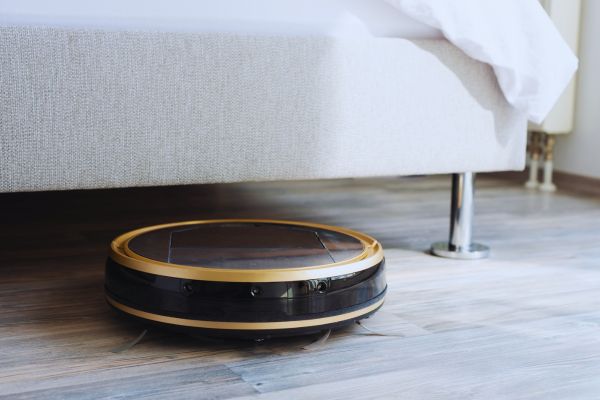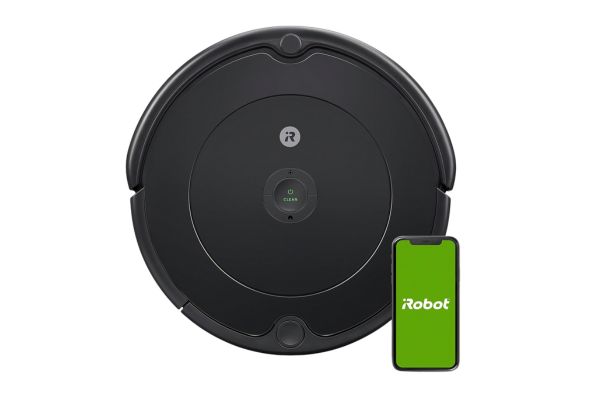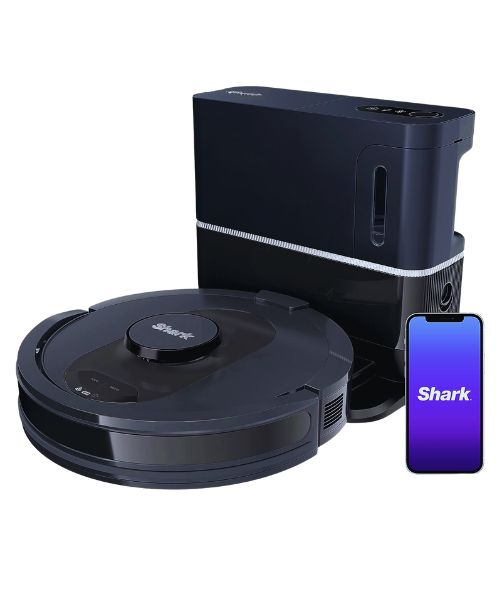Robot vacuums can gracefully minimize your daunting cleaning chores, from cleaning dust bunnies to conquering pet hairs from nooks and crannies. These vacuum cleaners come with 1 or 2 years of manufacturer warranty, but you can significantly enhance their lifespan with some practical tips and hacks. It might seem to wonder how long these smart devices actually last. Let’s take a deep dive and explore how many years robot vacuums daintily shine and the major factors that influence their lifespan.
Table of Contents
How Long Do Robot Vacuums Last?
Typically, a robot vacuum can last between three to five years and even more based on a particular model and its usage. Robot vacuums with advanced features have blasted popularity in the span of the last decade and have become more available. You can find them almost everywhere, both in online and offline home appliance stores. These smart home cleaners can be packed with average basic cleaning perks as well as boast advanced features. Comparatively, high-end models, such as the iRobot Roomba j7+, last longer, more than 5 years than low-end or second-hand devices.

How Can I Make My Robot Vacuum Last Longer?
You can extend the lifespan of your tried-and-true robot vacuum by taking proper care of the device, which will ensure optimal performance as well. Let’s take a dive into the tips and hacks to enhance the longevity of your cleaning bot:
Clean the Robot Vacuum Regularly: Regular cleaning of the dustbin and filter prevents clogs and maintains flawless suction power during navigation. Remove any tangled hair and debris in the brush. Don’t forget to wipe down sensors and other components to prevent dirt buildup.

Don’t Hold the Dust, Empty the Bin Frequently: Empty the dustbin after each cleaning cycle. It will prevent the device from overflowing and motor damage. A full dustbin may cause the vacuum motor to overheat and lead to potential damage.
Dust-clean the Charging Contacts: The charging contacts on the vacuum and the charging dock should be kept clean. Dirty contacts can negatively impact the charging process and might damage the battery.
Ensure the Bot is in a Compatible Surfaces: Not all the Robot vacuums are designed for mopping and vacuuming simultaneously. Most robot vacuums clean fine dust on floors and carpets, and using them on wet surfaces can lead the device to malfunction. So, it’s advisable to avoid using a robot vacuum on excessively uneven or wet surfaces if the device is not compatible.
Store Space Should be Clean and Tidy: After finishing vacuuming, store the robot vacuum in a cool, dry place. Never expose the device to extreme temperatures or direct sunlight.
Update Software/Firmware: You have to remain mindful to check for and install any software or firmware updates suggested by the manufacturer. These updates often improve performance and fix software bugs.
Conduct Proper Replacement: If you want to maximize the performance capacity of your robot vacuum cleaner, you need to replace the following parts of your vacuum every few months to several years.
- Battery (2 years)
- Brush (every 6 months)
- Filter (every 3 to 6 months)
- Trash can (if needed)
How Long Does Robot Vacuum Battery Last?
There is a designated cycle rating for robot vacuum batteries- the potential timeframe a robot vacuum can fully recharge and discharge its power within its activated lifespan. It means each time you charge the bot, it loses cycles gradually. The number of cycles depends on multiple factors, like the battery types and how often you use your robot vacuum.

Robot vacuums comprise two types of batteries:
- Lithium-ion
- Nickel-metal hydride
Lithium batteries are upgraded and commonly found in smartphones, laptops, and good-quality robot vacuum cleaners. In terms of longer life span, lithium batteries are mostly recommended. A lithium battery has lasting resilience for approximately up to 5 years and can withstand around 1,500-2,000 cycles. We found nickel batteries in robot vacuums that are not much great in quality. Nickel batteries service might last around 400 cycles or up to 2 years.
How Long Do Shark Robot Vacuums Last?
Shark is widely popular for its upright vacs and other affordable models that can extract stubborn dirt from different floor surfaces. Shark holds a competitive price spot in the market, and most Shark vacuums last to a decade with sensible upkeep and regular maintenance. Their warranty typically remains valid from one year up to five years.

How Long Do Roborock’s Last?
Roborock manufactures high-end robot vacuums that can cause you to break the bank. Such high-end vacuum cleaners have longer battery life (more than two hours), powerful suction, integrated smart tech, and advanced sensors. Roborock vacuums are robust, offer excellent cleaning experience, and can last up to five years or more in proper care and maintenance.

How Long Do Eufy Robot Vacuums Last?
Eufy can bring versatility to the cleaning schedule for those who are looking for a robot vacuum at a budget-friendly price. With all the basic cleaning perks, an average Eufy Robot vacuum can last 2 to 3 years. With proper upkeep and maintenance, you can enhance the lifespan of a Eufy robot vacuum cleaner.
How Long Does Xiaomi Robot Vacuum Last?
Xiaomi Robot Vacuums have powerful suction and longer battery life, and these vacuums are mid-range cleaners. However, on average, a Xiaomi robot vacuum can last more than two years in sustained maintenance.
Final Words
In the advancement of household automation, evaluating the lifespan of a robot vacuum is necessary before making any grand investment. Robot vacuums are smarter and ready to provide you with a superior cleaning experience. However, to maintain their maximum longevity, you must maintain the care instructions, including regular cleaning, periodical parts replacement, etc. This article will keep you armed with the knowledge about upkeeping robot vacuums so you can better navigate the longevity enigma of your robot vacuum.
FAQ
Can I Run My Robot Vacuum Every Day?
Yes. You can run a robot vacuum every day if your home is full of traffic and open to dusty wind. Those with less traffic at home and no pet animal can run the bot three to four times per week. However, busy homes always require frequent cleaning, so you follow that!
Are Vacuum Robots Worth the Money?
When a robot vacuum is active, you can pause for a while and let the device clean the house floors. Robot vacuums bring you utter convenience, especially when you’re busy or not in the house but need immediate cleaning. These robots boast low-profile designs, which are useful for the upkeep of hard-to-clean areas. Despite its hefty price, spot robot vacuums have other limitations, including the lack of upper surface area cleaning. If you’re looking for a vacuum cleaner to take care of your floor surfaces (bare floor and carpets) only, then robot vacuums can settle your nerves, which is absolutely worth the money.
Do Robot Vacuums Use a Lot of Electricity?
If a robot vacuum is a higher-wattage device, it might consume more electricity. However, compared to the regular full-size upright vacuum cleaner, robot vacuums are more energy efficient.

